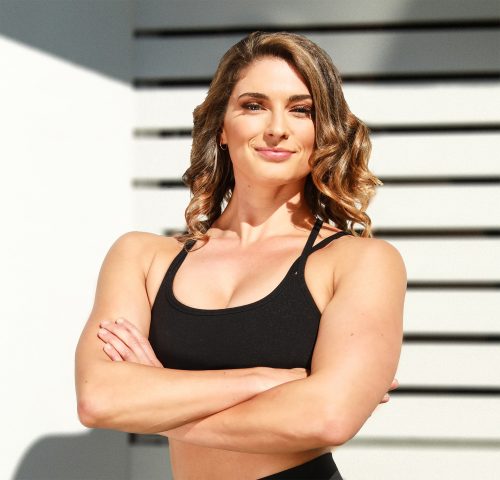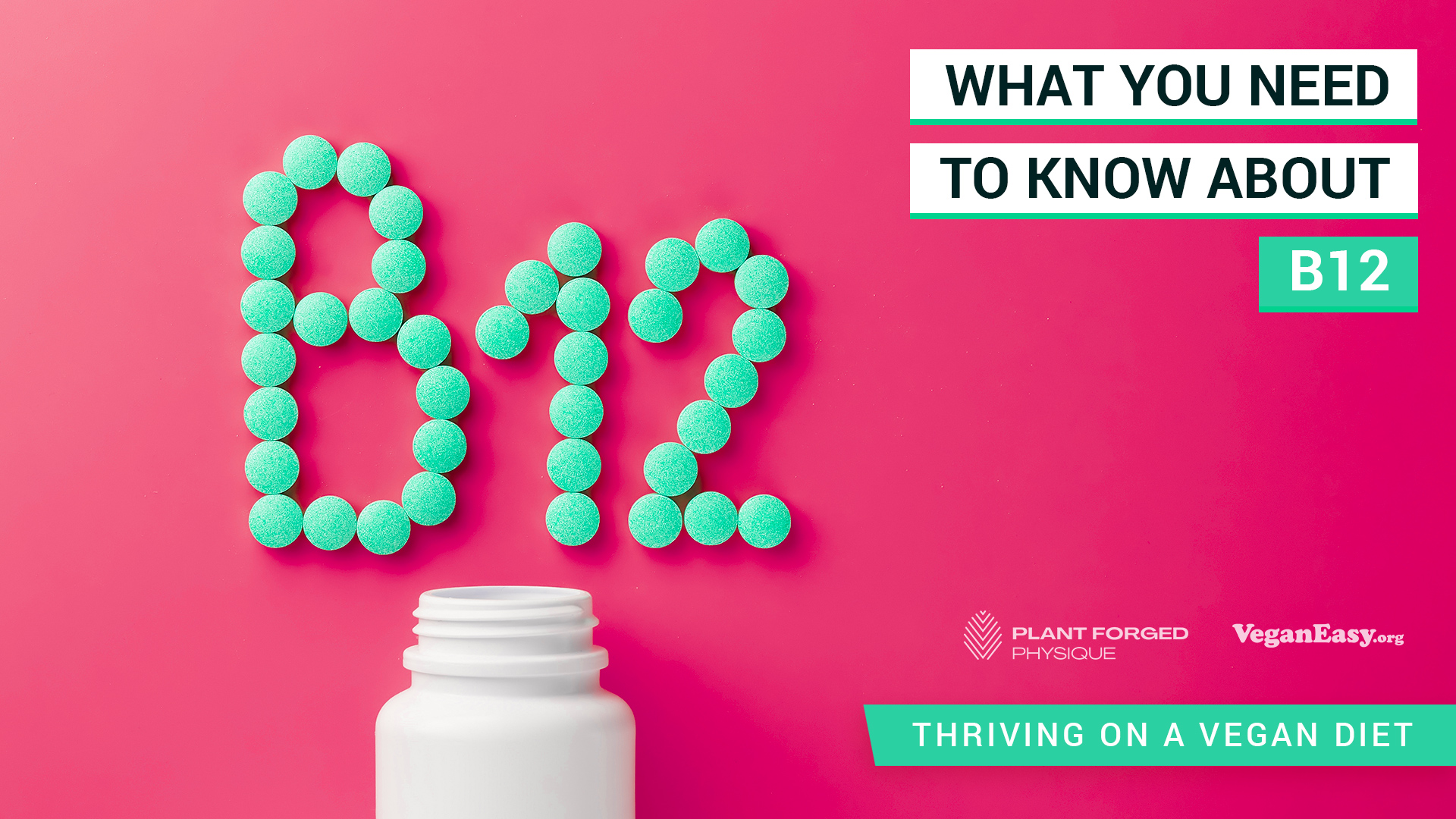
 Micronutrient mini-series
Micronutrient mini-series
This article series is a spotlight on the micronutrients, vitamins and minerals you need on a vegan diet. We look at where you can get them, how much you need, if supplementing is necessary, and tips for incorporating them into your plant-based diet.
Article by Caitlin Adler, a vegan Accredited Sports Nutritionist, Strength & Conditioning coach and bodybuilder at Plant Forged Physique. Her passion is helping vegans achieve their health and fitness goals with evidence-based guidance and expertise. Check out their free Vegan Supplement Cheat Sheet and other resources.
B12 is a vitamin needed for healthy blood, DNA and nervous system. Your body uses B12 to form red blood cells, brain and nerve cells, and it also aids with energy production.
Low consumption of B12 can lead to deficiency, where B12 levels become too low to meet the body’s needs. B12 is stored in the liver for several years, so it can take anywhere from 1-5 years for a person to eventually become deficient.
Symptoms of mild deficiency include weakness, tiredness and lightheadedness. If untreated, this can progress to more severe symptoms like heart palpitations, pale skin, shortness of breath and even irreversible neurological problems like numbness or tingling, muscle weakness, and mental problems like depression, memory loss, or behavioural changes.
How Much?
B12 is primarily found in animal sources – like dairy, eggs, fish, meat and poultry. B12 can be synthesized in the stomach of these animals, particularly in ruminants like cattle, sheep, and goats, or consumed by animals from bacteria in the soil. Clean food practices mean that B12 is rarely consumed by humans from the soil found on plants.
Consequently, it can be challenging for vegans to get enough B12 to meet their requirements which makes them more susceptible to deficiency.
A 2010 cross-sectional analysis of meat-eaters, vegetarians and vegans found that 52% of the vegans, 7% of the vegetarians and 1 meat-eater had B12 deficiency.
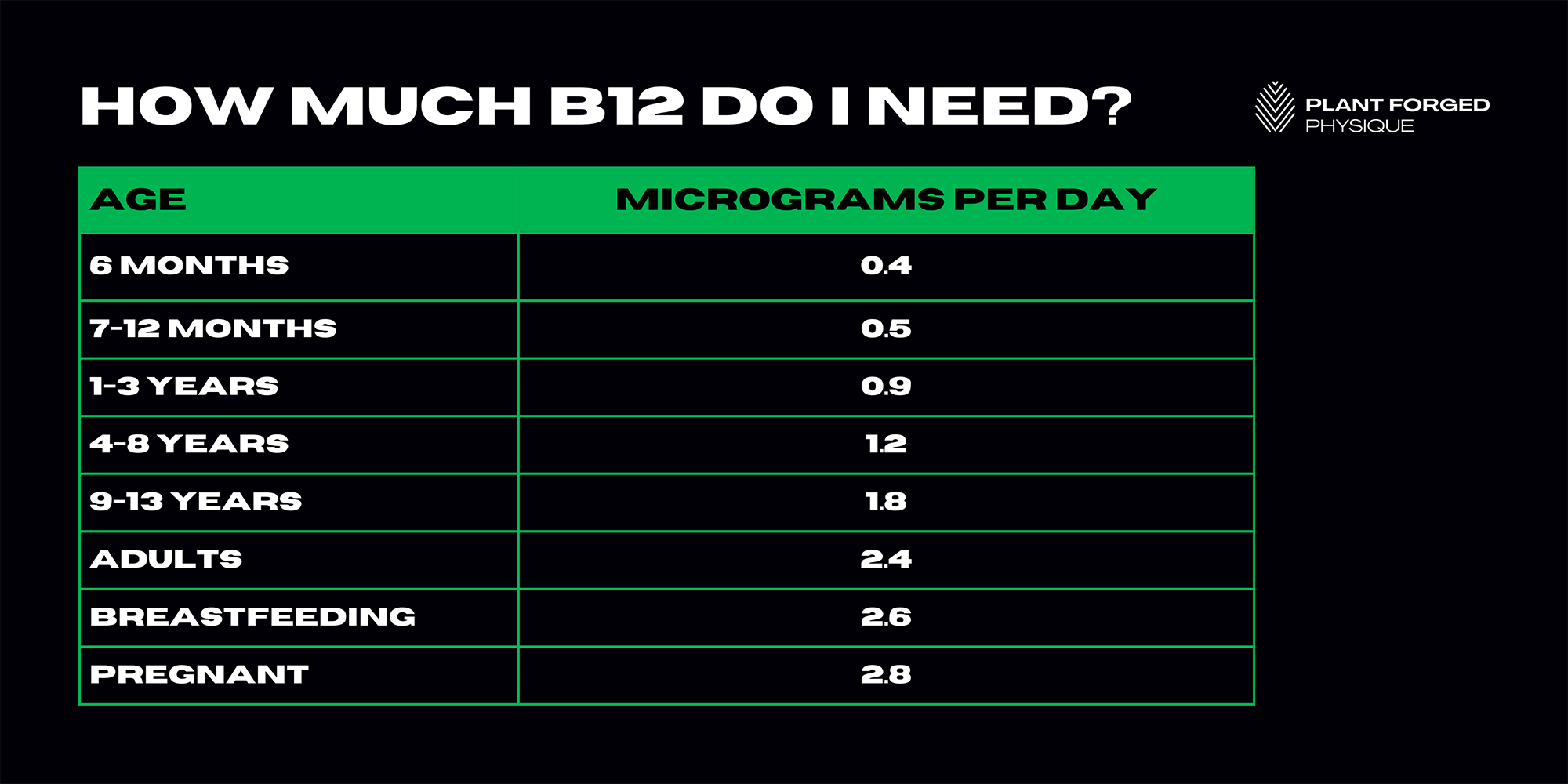
Where from?
There are a limited number of plant-based sources that naturally have the vitamin. Some foods are fortified with B12, which can also be a useful tool for vegans but it’s worth noting aren’t very common or in high doses.
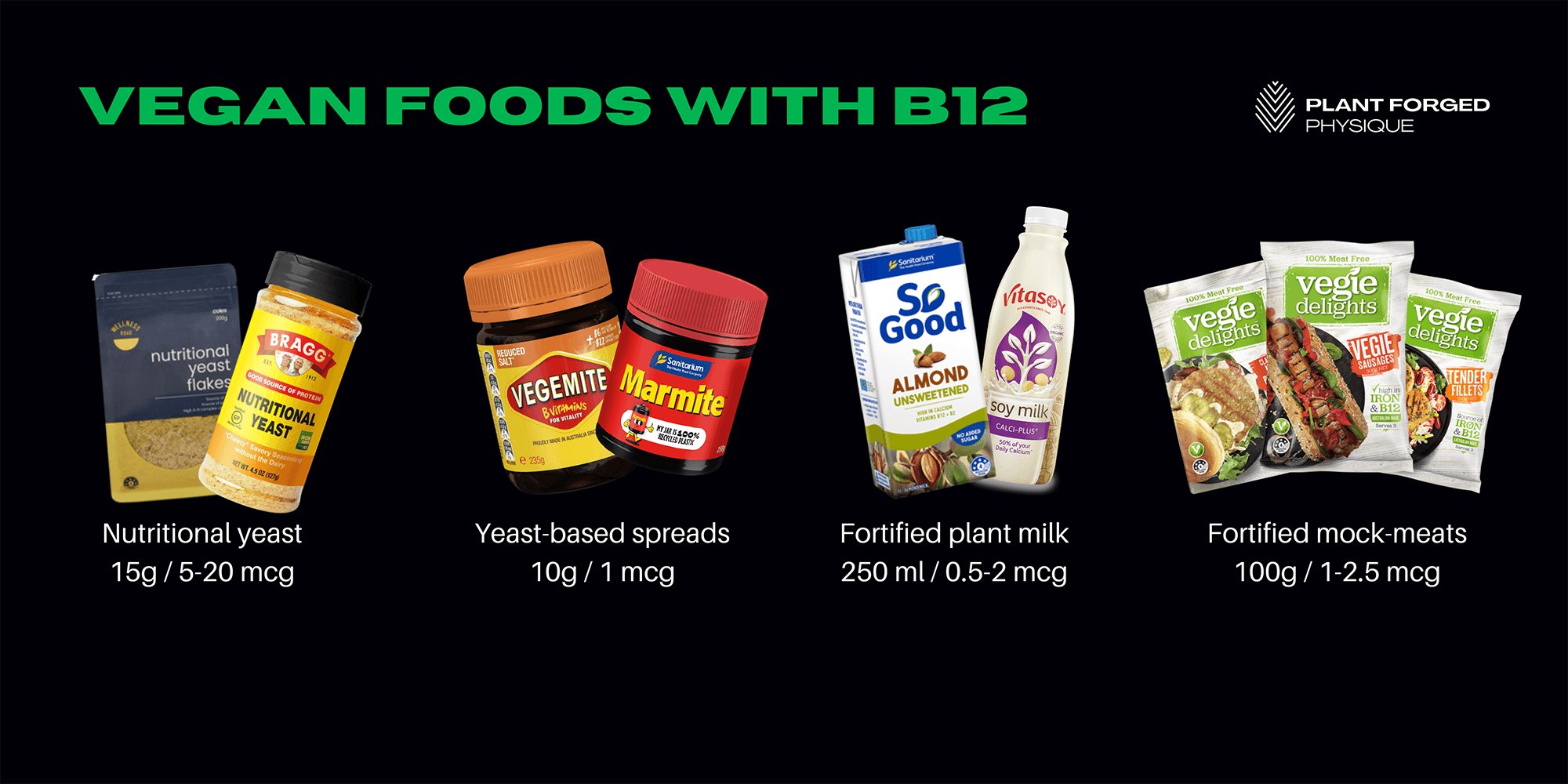
Supplementing?
Because B12 isn’t found in many plant-based foods, supplementing with B12 is highly recommended for vegans. This will help ensure you meet your intake requirements and thrive on a vegan diet.
You’ll notice B12 supplements usually exceed the recommended daily intake, with many supplements ranging from 500-2000 mcg. This is because B12 in this form has low bioavailability with absorption typically around ~1-2%.
It is therefore recommended that adults take a supplement with 1000-2500 mcg twice weekly. If you’re over the age of 50, whether you’re vegan or not, it’s recommended to supplement with B12 as your ability to absorb B12 decreases as you age.
As B12 is a water-soluble supplement, it’s safe to take at these higher doses. Your body absorbs only as much as it needs and any excess is removed through your urine.
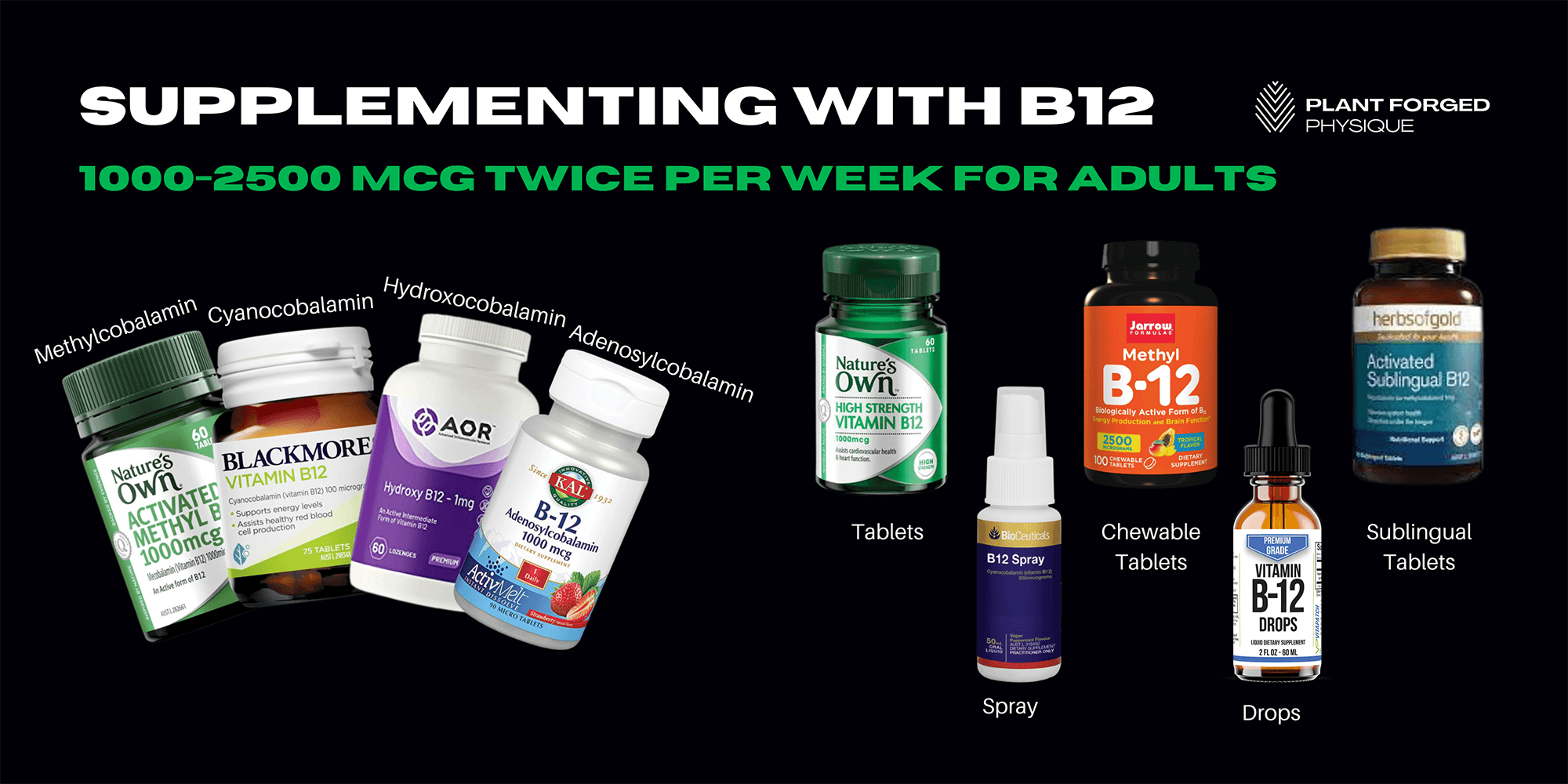
There are four main forms of vitamin B12 (cobalamin):
- Methylcobalamin
- Adenosylcobalamin
- Hydroxocobalamin
- Cyanocobalamin
There are some perceptions that cyanocobalamin is inferior and methylcobalamin isn’t as bio-available. But there is no clinical evidence supporting these claims or that one form is better absorbed than another.
There are also a variety of methods for B12 supplementation, like chewable tablets, sprays, or tablets and liquids placed under the tongue. Studies have shown no significant difference between the various options – so choose the one you like the most. In cases of severe vitamin B12 deficiency doctors may also prescribe B12 injections in the muscle.
Key takeaways
B12 is unfortunately not prevalent in a plant-based diet, and B12 fortified foods aren’t commonly found either. So it’s recommended for vegans to supplement daily with B12 to ensure they are meeting their dietary needs.
Summary
- B12 is most commonly found in animal-based foods, so vegans not supplementing with B12 are more likely to be deficient
- Meeting your daily B12 intake is vital to remaining healthy on a vegan diet even though it may take years for deficiency to appear
- B12 can be found in a few vegans foods – like nutritional yeast & fortified foods but aren’t very common or in a high dosage
- So it’s recommended to supplement with 1000-2500 mcg of B12 twice weekly from any B12 type & method of delivery
FREE VEGAN SUPPLEMENT CHEAT SHEET
Want to learn more about supplementing as a vegan?
Download the Free Vegan Supplement Cheat Sheet from Plant Forged Physique.
This handy evidence-based guide outlines exactly what supplements are needed to improve muscle gain, health, performance, recovery, and fat loss – and which ones are a waste of your time and money!
